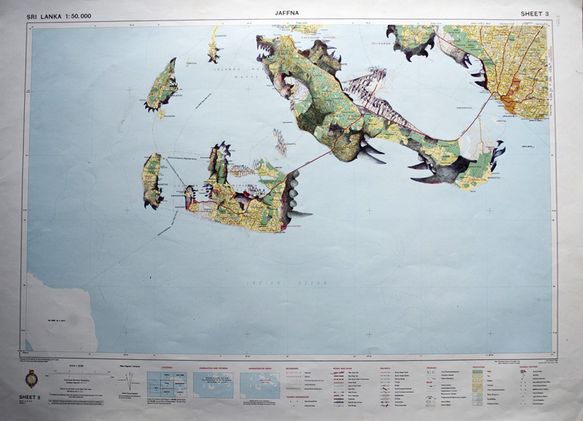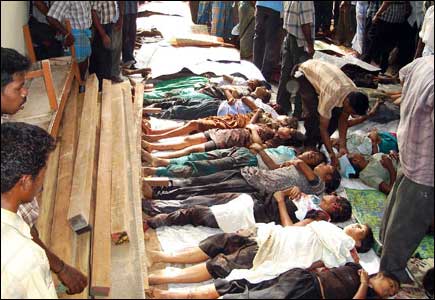US State Dept: Lasting peace requires a durable political solution
Extracts from US Assistant Secretary for South and Central Asian Affairs Robert Blake’s speech to the Asia Society on Monday:
(see full text here, and video of the whole event here)
“[Will] prosperity will bring lasting peace and healing in Sri Lanka? I think it’s an essential question to ask. After so many years of conflict, economic growth and improving livelihoods are certainly important for rebuilding the country. But I also believe that reconciliation has important political and social dimensions as well.
“Lasting peace requires a durable political solution. …Economic prosperity and development are necessary, but not sufficient, conditions for lasting peace and healing in Sri Lanka.
“... the solution for lasting peace needs to include not just economic opportunity, but a political climate in which every Sri Lankan feels he or she has an equal stake in the country’s future and the ability to realize his or her potential in an open and just society.”
On Tamil areas today:
“The end of the conflict has presented an incredible opportunity to build a peaceful, just, democratic, united Sri Lanka. The US is concerned, however, that some developments are shrinking the democratic space and respect for human rights in the country.
“Nearly two years after the conclusion of the fighting, substantial parts of the emergency regulations remain in place, the north continues to be heavily militarized, and;
“the role of the armed forces appears to have increased with the Ministry of Defense assuming responsibility in non-traditional areas such as urban development.”
On war crimes:
“Perhaps most critical is a full accounting of the individual lives that are still in question from the end of the war. ... Accountability is an essential part of any reconciliation process. Without it an enduring peace will remain elusive as unhealed wounds fester.
“Primary responsibility for implementing a credible and independent process through which individuals who may have violated human rights and international humanitarian law are held accountable for their actions lies with Sri Lanka itself.
“Our strong preference is that the Sri Lankan government establish its own transparent process that meets international standards. However, in the absence of such a mechanism, there will be mounting pressure for an international mechanism.”
On a political solution:
“The United States is encouraged that the government has conducted two rounds of talks on a political settlement with the Tamil National Alliance. We hope that a third round of talks will soon build upon the constructive first two rounds of talks that have already taken place.”






